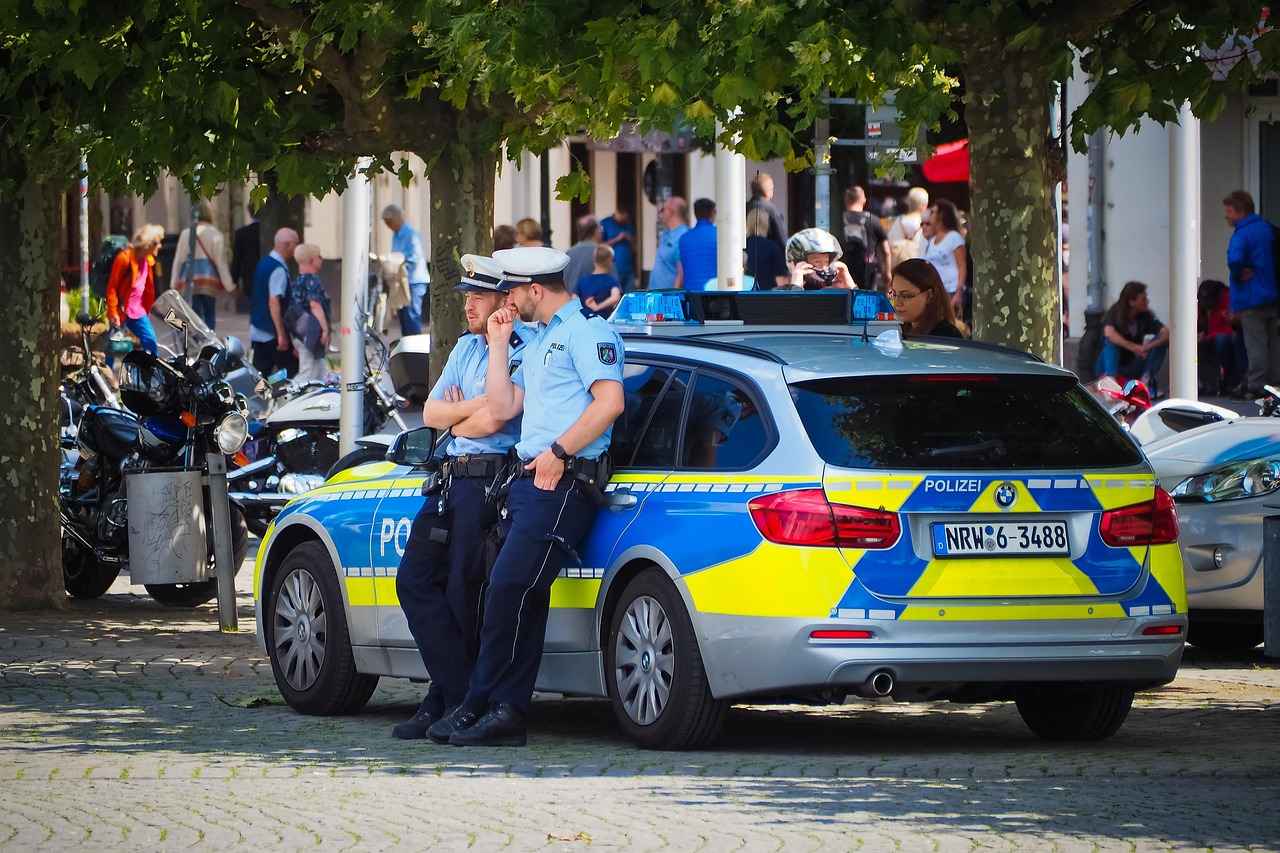This article delves into the structure, functions, and prominent figures within the West Bengal Police, shedding light on their vital role in maintaining law and order in the state.
The West Bengal Police serves as a cornerstone of law enforcement in the state, tasked with ensuring public safety and upholding legal standards across various jurisdictions. With a rich history and evolving strategies, this organization adapts to the dynamic needs of society.
- Overview of West Bengal Police: The police force is integral to the state’s governance, providing essential services in crime prevention and public safety.
- Historical Background: The evolution of the West Bengal Police reflects significant changes in governance and law enforcement practices over time.
- Modernization Efforts: Recent initiatives focus on technology integration and community policing to enhance operational efficiency.
Understanding the historical context of the West Bengal Police is crucial. The force was established during the colonial era, influenced heavily by British governance structures. Post-independence, the police underwent various reforms to adapt to the changing socio-political landscape, improving its effectiveness in law enforcement.
Roles and Responsibilities: The primary duties of the West Bengal Police include:
- Crime Prevention: Engaging with communities to deter criminal activities through proactive measures.
- Investigation: Conducting thorough investigations to ensure justice is served, involving meticulous evidence collection.
Key Officers: Leadership within the West Bengal Police is pivotal. The Director General of Police (DGP) oversees all operations, while District Police Superintendents (SPs) manage law enforcement in their districts, addressing local issues effectively.
Community Policing Initiatives: Building trust between the police and the public is essential. Programs that promote citizen engagement in crime prevention foster a collaborative environment, enhancing safety and security.
Despite its efforts, the West Bengal Police faces challenges such as resource limitations and public perception. Addressing these issues is vital for maintaining operational efficiency and community trust.
Future Directions: The focus on ongoing reforms and technological advancements will guide the West Bengal Police in meeting evolving challenges. Continuous training and development of officers are crucial for effective law enforcement.
In conclusion, the West Bengal Police plays a fundamental role in maintaining law and order in the state, facing challenges that require ongoing adaptation and community engagement to ensure public safety.

Overview of West Bengal Police
The West Bengal Police serves as a backbone of law enforcement in the state, playing a vital role in maintaining public safety and upholding the law. Established to address the unique challenges of a diverse and populous region, the police force is tasked with a range of responsibilities that extend beyond mere law enforcement.
With a commitment to ensuring peace and order, the West Bengal Police operates across various districts, adapting its strategies to meet local needs. This adaptability is crucial in a state where urban and rural dynamics often present different challenges. The police force is structured to facilitate effective governance, enabling officers to respond promptly to incidents and community concerns.
One of the core functions of the West Bengal Police is crime prevention. Through proactive measures, including community engagement and awareness programs, the police work to deter criminal activities. These initiatives not only aim to reduce crime rates but also foster a sense of security among citizens.
In addition to crime prevention, the West Bengal Police is deeply involved in investigative processes. Skilled investigators are trained to meticulously gather evidence, ensuring that justice is served efficiently. This involves collaboration with various stakeholders, including forensic experts and community members, to build strong cases against offenders.
Furthermore, the West Bengal Police has embraced modernization efforts in recent years. By integrating technology into their operations, they enhance their ability to respond to incidents and manage resources effectively. This technological advancement not only improves operational efficiency but also helps in building trust with the community.
In conclusion, the West Bengal Police is an essential institution dedicated to safeguarding the public and enforcing the law. Their multifaceted approach, which includes crime prevention, investigation, and modernization, positions them as a crucial player in the state’s safety and security landscape.

Historical Background
Understanding the of the West Bengal Police is essential to grasp its evolution and the pivotal events that have influenced its current framework and operations. Established during the British colonial era, the force has undergone significant transformations to adapt to the changing dynamics of society and governance.
Initially, the West Bengal Police was formed to maintain order and control over the local population during colonial rule. The colonial influence on policing practices created a framework that emphasized authority and surveillance, which, in many ways, still resonates in contemporary practices. The early years were marked by challenges such as limited resources, frequent unrest, and the struggle to establish a trustworthy relationship with the community.
Following India’s independence in 1947, the West Bengal Police faced the daunting task of redefining its role in a democratic society. This period saw a wave of reforms aimed at enhancing accountability, transparency, and community engagement. The police force began to focus more on crime prevention and public service, moving away from the colonial mindset that prioritized control over community relations.
In recent decades, the West Bengal Police has embraced modernization efforts to improve its efficiency and responsiveness. The integration of technology into policing, such as the use of data analytics and digital communication, has transformed how the police operate. Furthermore, community policing initiatives have been introduced to foster collaboration between the police and the public, aiming to build trust and improve safety.
As we look at the current state of the West Bengal Police, it is clear that its historical evolution has played a crucial role in shaping its present-day functions and responsibilities. The lessons learned from the past continue to inform its strategies, ensuring that the police force remains relevant and effective in addressing contemporary challenges.
Formation and Early Years
The formation of the West Bengal Police can be traced back to the colonial era, where it emerged as a response to the pressing need for law enforcement in a rapidly changing society. Established during the British rule, the police force was initially tasked with maintaining order and suppressing dissent, reflecting the broader governance challenges faced by colonial authorities.
In its early years, the West Bengal Police grappled with numerous challenges that shaped its operational framework. The force was often viewed with suspicion by the local populace, primarily due to its association with colonial oppression. This distrust posed significant hurdles in governance, as effective law enforcement relied heavily on community cooperation.
During these formative years, the police force began to develop a structure that mirrored British policing practices, which included the establishment of various ranks and divisions. The introduction of the Police Act of 1861 laid the groundwork for modern policing in India, including West Bengal. This act aimed to create a disciplined and organized police force, although its implementation often faced resistance from the local communities who viewed the police as an extension of colonial power.
As the years progressed, the West Bengal Police adapted to the socio-political landscape of the region. The post-independence era marked a significant turning point as the force sought to redefine its role in a newly independent India. Reforms were initiated to shift the focus from mere enforcement to community-oriented policing, aiming to rebuild trust and improve relations with the public.
Today, the legacy of these early challenges continues to influence the West Bengal Police. Understanding this historical context is crucial for appreciating the evolution of the force and its ongoing efforts to enhance public safety and trust within the community.
Colonial Influence
on the West Bengal Police has left a lasting legacy that shapes its operations and practices even today. The roots of the police force in West Bengal can be traced back to the British colonial era, where the establishment of law enforcement was primarily aimed at maintaining control over the local population and ensuring the interests of the colonial administration.
During the colonial period, the police were structured to serve the needs of the British Empire, leading to the implementation of various laws and regulations that prioritized colonial governance over community welfare. This resulted in a police system that was often viewed with suspicion and fear by the local populace. The focus was on maintaining order rather than fostering community relations, which has had long-term implications for public trust in law enforcement.
- Establishment of Police Forces: The British established formal police forces in the 19th century, introducing a hierarchical structure that remains largely intact today.
- Legal Framework: Many laws enacted during the colonial era still influence contemporary policing practices, including the Indian Penal Code and the Criminal Procedure Code.
- Training and Discipline: The colonial police were trained to enforce laws strictly, often employing harsh measures to suppress dissent, a practice that has contributed to ongoing discussions about police accountability.
Post-independence, the West Bengal Police sought to reform and adapt these colonial legacies to better serve the democratic needs of the state. However, the historical foundations laid during the colonial period continue to affect perceptions of the police, influencing their relationship with the communities they serve.
In conclusion, understanding the on the West Bengal Police is crucial for grasping its current challenges and dynamics. As the force continues to evolve, addressing the remnants of its colonial past will be essential in building a more collaborative and trusted law enforcement agency.
Post-Independence Developments
After India gained independence in 1947, the West Bengal Police underwent significant transformations to align with the new democratic framework and respond to the evolving socio-political landscape. These reforms were essential to ensure that the police force could effectively maintain law and order while upholding the rights and liberties of the citizens.
The initial reforms focused on restructuring the police force to eliminate colonial-era practices that were often viewed as oppressive. The emphasis shifted towards community-oriented policing, which aimed to foster a better relationship between the police and the public. This approach was vital in building trust and cooperation, essential for effective law enforcement.
One of the key developments during this period was the introduction of various training programs designed to equip officers with modern policing techniques. These programs emphasized human rights, ethics, and community engagement, which were crucial for adapting to the needs of a diverse population. The police force also began to embrace technological advancements, integrating tools that improved operational efficiency and response times.
Moreover, the establishment of specialized units within the West Bengal Police marked a significant shift in focus. Units dedicated to cybercrime, women’s safety, and anti-terrorism emerged, reflecting the changing dynamics of crime and the need for specialized skills in handling complex issues. These units not only enhanced the effectiveness of law enforcement but also demonstrated a commitment to addressing contemporary challenges.
In the years following independence, the West Bengal Police also engaged in community outreach programs aimed at educating the public about their rights and responsibilities. This proactive approach was instrumental in reducing crime rates and enhancing public safety.
Overall, the post-independence developments in the West Bengal Police were characterized by a commitment to reform, modernization, and community engagement, setting the foundation for a more responsive and responsible law enforcement agency.
Modernization Efforts
The modernization of the West Bengal Police has become a focal point in recent years, reflecting a broader trend in law enforcement towards enhanced efficiency and community engagement. This initiative is not merely about adopting new technologies; it encompasses a comprehensive transformation of policing strategies to better serve the public.
- Technology Integration: One of the most significant aspects of modernization involves the integration of cutting-edge technology. The West Bengal Police have implemented advanced data analytics systems, which help in crime mapping and predictive policing. This technology allows officers to anticipate criminal activities and allocate resources more effectively.
- Digital Communication: The introduction of mobile applications and online platforms facilitates better communication between the police and the community. Citizens can report crimes, provide tips, and access information about local safety initiatives, fostering a sense of collaboration.
- Training Programs: Continuous training programs are essential for officers to adapt to new technologies and methodologies. These programs focus on enhancing skills in areas such as cybercrime investigation, community relations, and conflict resolution.
Community policing strategies have also gained prominence as part of the modernization efforts. By prioritizing community engagement, the West Bengal Police aim to build trust and cooperation with the public. This approach includes:
- Neighborhood Watch Initiatives: Encouraging local residents to participate in crime prevention efforts strengthens community ties and enhances safety.
- Public Awareness Campaigns: These campaigns educate citizens about safety measures, crime reporting, and the role of the police, promoting a proactive stance on public safety.
In conclusion, the modernization efforts of the West Bengal Police represent a significant shift towards a more integrated, community-oriented approach to law enforcement. By embracing technology and fostering collaboration with citizens, the police are better equipped to address the challenges of contemporary policing.

Roles and Responsibilities
Roles and Responsibilities of the West Bengal Police
The West Bengal Police plays a pivotal role in ensuring the safety and security of the public. Their responsibilities are multifaceted, encompassing various aspects of law enforcement and community engagement. Below, we explore the key roles that define their operations.
- Crime Prevention: One of the primary responsibilities of the West Bengal Police is to prevent crime. This involves proactive measures such as community outreach programs, awareness campaigns, and collaboration with local organizations to deter criminal activities.
- Investigation: When crimes occur, the West Bengal Police is tasked with thorough investigations. This includes gathering evidence, interviewing witnesses, and utilizing forensic science to solve cases efficiently and effectively.
- Maintaining Public Order: The police are responsible for maintaining public order, especially during large gatherings, protests, or events. They ensure that public safety is prioritized while respecting the rights of citizens to assemble and express their views.
- Traffic Management: Managing traffic and ensuring road safety is another critical function. The police implement traffic regulations and conduct awareness programs to reduce accidents and improve compliance with traffic laws.
- Community Engagement: Building trust within the community is essential. The West Bengal Police engages with citizens through various initiatives, fostering a collaborative environment where the public feels comfortable reporting crimes and sharing information.
In conclusion, the West Bengal Police’s roles and responsibilities are crucial for fostering a safe and secure environment. Their commitment to crime prevention, thorough investigations, and community engagement reflects their dedication to upholding the law and protecting the citizens of West Bengal.
Crime Prevention Strategies
are essential for the West Bengal Police, as they play a significant role in maintaining public safety and deterring criminal activities. The effectiveness of these strategies hinges on community engagement and the implementation of proactive measures that foster collaboration between law enforcement and the community.
The West Bengal Police recognizes that crime prevention is not solely the responsibility of law enforcement agencies; rather, it requires the active participation of the community. By engaging citizens in various programs, the police can create a network of vigilance that enhances safety. This partnership not only helps in identifying potential threats but also in building trust and rapport between the police and the community.
| Strategy | Description |
|---|---|
| Community Policing | Involves officers working closely with community members to address local issues and concerns. |
| Awareness Campaigns | Conducting workshops and seminars to educate the public about crime prevention techniques. |
| Neighborhood Watch Programs | Encouraging residents to monitor their neighborhoods and report suspicious activities. |
| Youth Engagement | Involving young people in positive activities to reduce juvenile delinquency. |
Moreover, the West Bengal Police employs technology to enhance its crime prevention efforts. Utilizing data analytics, the police can identify crime hotspots and deploy resources more effectively. This strategic approach allows for a more focused response to emerging threats.
In conclusion, the West Bengal Police is committed to implementing effective crime prevention strategies that rely on community engagement and the use of modern technology. By fostering a collaborative environment, they aim to not only deter criminal activities but also to enhance the overall safety and security of the communities they serve.
Investigation Procedures
play a pivotal role in the functioning of the West Bengal Police, ensuring that justice is served through systematic and thorough methodologies. The procedures are designed to uphold the integrity of the legal system while safeguarding the rights of all individuals involved.
The investigation process begins with initial response to a reported crime, where officers are trained to secure the scene to prevent contamination of evidence. This stage is critical, as it sets the foundation for the entire investigation. Officers collect preliminary information from witnesses and victims, which aids in understanding the context of the incident.
- Evidence Collection: The West Bengal Police employs a meticulous approach to evidence collection. This includes gathering physical evidence, such as fingerprints, DNA samples, and other forensic materials, which are crucial for building a strong case.
- Witness Interviews: Conducting thorough interviews with witnesses is essential. Trained investigators use various techniques to elicit accurate and reliable information, ensuring that all perspectives are considered.
- Documentation: Every step of the investigation is documented meticulously. This includes photographs of the crime scene, notes from interviews, and records of evidence collected, which are vital for legal proceedings.
Once the evidence is collected, the analysis phase begins. This involves forensic analysis, where scientific methods are applied to interpret the collected evidence. The West Bengal Police collaborates with forensic experts to ensure that the analysis is both comprehensive and accurate.
Furthermore, the police utilize technology to enhance their investigative capabilities. Tools such as digital forensics, surveillance systems, and data analysis software play a significant role in modern investigations. These technological advancements allow for a more efficient and effective approach to solving crimes.
In conclusion, the investigation procedures of the West Bengal Police are integral to the pursuit of justice. Through careful evidence collection, thorough analysis, and the application of technology, they strive to ensure that every case is handled with the utmost professionalism and diligence.

Key Officers and Their Roles
The West Bengal Police is a well-structured organization, with key officers playing essential roles in its operation and effectiveness. These officers are not just leaders; they are the backbone of the police force, responsible for strategic planning, operational management, and community engagement. Their leadership directly impacts the force’s ability to maintain law and order, making their roles pivotal in the overall functioning of the police department.
Director General of Police (DGP)
The Director General of Police is the highest-ranking officer in the West Bengal Police. This position entails comprehensive oversight of all police operations in the state. The DGP formulates policies, sets strategic objectives, and ensures that the police force operates efficiently. They are also the primary liaison between the police department and the state government, advocating for necessary resources and reforms.
District Police Superintendents (SPs)
District Police Superintendents are crucial for managing law enforcement at the district level. Each SP is responsible for overseeing police activities within their jurisdiction, addressing local crime issues, and implementing community policing initiatives. They play a vital role in ensuring that police actions align with community needs, fostering trust and cooperation between the police and the public.
Additional Key Roles
- Commissioners of Police: In metropolitan areas, Commissioners oversee urban policing, focusing on crime prevention and community relations.
- Investigating Officers: These officers specialize in crime investigation, ensuring thorough evidence collection and case management.
- Traffic Police Officers: Responsible for enforcing traffic laws and ensuring road safety, these officers play a significant role in managing urban traffic issues.
Conclusion
The effectiveness of the West Bengal Police is largely attributed to the leadership and dedication of its key officers. Their roles are interconnected and vital for maintaining public safety and trust within the community. As the police force continues to evolve, the contributions of these officers will remain essential in addressing contemporary challenges and fostering a safer environment for all citizens.
The Director General of Police
The Director General of Police (DGP) is a pivotal figure in the law enforcement framework of West Bengal, holding the highest rank within the police department. This role is not merely a title; it encompasses a range of critical responsibilities that are essential for maintaining public safety and enforcing the law across the state.
The DGP is tasked with the oversight of police operations, ensuring that all units within the department function effectively and efficiently. This includes coordinating with various divisions, such as criminal investigation, traffic management, and community policing, to ensure a cohesive approach to law enforcement.
In addition to operational oversight, the DGP plays a vital role in policy implementation. They are responsible for developing and enforcing departmental policies that guide the conduct of police personnel and establish protocols for handling various situations, from routine patrols to emergency responses.
Moreover, the DGP is crucial in strategic planning and resource allocation. They assess the needs of the police force, advocate for necessary funding, and ensure that officers are equipped with the tools and training required to perform their duties effectively. This strategic vision is essential for adapting to the ever-evolving landscape of law enforcement challenges.
Community engagement is another significant aspect of the DGP’s role. By fostering relationships with community leaders and organizations, the DGP helps build trust and collaboration between the police and the public. This approach not only enhances public safety but also encourages community involvement in crime prevention efforts.
In summary, the Director General of Police is a central figure in the West Bengal Police, tasked with overseeing operations, implementing policies, and engaging with the community. Their leadership is vital for ensuring that the police force meets the challenges of modern law enforcement while maintaining public trust and safety.
District Police Superintendents
District Police Superintendents (SPs) play a crucial role in the law enforcement framework of West Bengal, overseeing the police operations within their designated districts. Their primary responsibility is to ensure that local issues are addressed with both effectiveness and efficiency, adapting strategies to meet the unique challenges of their areas.
SPs act as the pivotal link between the police force and the community, facilitating a better understanding of local concerns. They are tasked with the following key responsibilities:
- Leadership and Management: SPs lead police teams, ensuring that officers are well-coordinated and motivated to perform their duties. They provide guidance on operational strategies and set performance standards.
- Crime Prevention: By analyzing crime patterns and community needs, SPs implement proactive measures to prevent crime, often working closely with community leaders and local organizations.
- Investigation Oversight: SPs supervise criminal investigations, ensuring that procedures are followed meticulously and that evidence is collected systematically to uphold justice.
- Public Relations: Building trust within the community is essential. SPs engage with residents through various outreach programs, fostering a cooperative environment that encourages public participation in safety initiatives.
- Resource Management: Efficient allocation of resources, including personnel and equipment, is critical for maintaining operational effectiveness. SPs are responsible for ensuring that their teams are adequately equipped to handle local challenges.
Moreover, SPs are instrumental in implementing community policing initiatives, which are essential for enhancing public safety. These initiatives aim to create a partnership between the police and the community, promoting transparency and collaboration.
In conclusion, the role of District Police Superintendents is vital in shaping the effectiveness of law enforcement in West Bengal. Their leadership, community engagement, and strategic oversight are fundamental in addressing local issues and ensuring the safety and security of the public.

Community Policing Initiatives
are vital for fostering a robust relationship between law enforcement agencies and the communities they serve. These initiatives are designed to enhance public safety through collaboration, transparency, and mutual respect.
At the core of community policing is the belief that effective crime prevention can only be achieved through active participation from community members. By involving citizens in the policing process, the police can better understand the unique needs and concerns of the community, leading to tailored solutions that enhance overall safety.
- Building Trust: Establishing trust is essential. Community policing initiatives focus on creating open lines of communication, allowing citizens to feel more comfortable reporting crimes and sharing information.
- Collaborative Problem Solving: Police and community members work together to identify issues and develop strategies to address them, fostering a sense of ownership among residents.
- Increased Visibility: Officers engage more with the community through regular patrols and participation in local events, making them more approachable and familiar to residents.
Moreover, feedback mechanisms play a crucial role in these initiatives. By allowing community members to voice their concerns and suggestions, police departments can adapt their practices to better meet the needs of the public. This two-way communication not only improves policing strategies but also enhances public perception of law enforcement.
Despite the numerous advantages of community policing, challenges remain. Resource limitations and varying public perceptions can hinder the effectiveness of these initiatives. Nonetheless, the commitment to fostering a collaborative environment remains a priority for many police departments.
In conclusion, community policing initiatives are essential for building a safer and more secure environment. By promoting collaboration and trust between police and the public, these initiatives not only enhance safety but also empower communities, making them active participants in their own security.
Engagement Programs
designed by the West Bengal Police are essential initiatives aimed at fostering a safer community through active citizen participation. These programs are crafted to encourage collaboration between the police force and the public, recognizing that effective crime prevention is a shared responsibility.
At the heart of these engagement programs is the belief that community involvement can significantly enhance public safety. By inviting citizens to take part in various activities, the West Bengal Police not only educate the community about crime prevention strategies but also build trust and rapport. This collaborative approach is vital in creating a supportive environment where individuals feel empowered to report suspicious activities and engage in safety measures.
One of the key components of these programs is the organization of workshops and seminars. These events are designed to inform citizens about the latest trends in crime and provide them with tools to protect themselves and their neighborhoods. Additionally, the police often conduct outreach programs in schools and colleges, targeting young people to instill a sense of responsibility and awareness from an early age.
Moreover, the West Bengal Police has implemented neighborhood watch schemes, encouraging local communities to work together in monitoring their surroundings. These initiatives not only serve to deter criminal activities but also foster a sense of unity among residents. Regular community meetings facilitate open dialogue between the police and citizens, allowing for feedback and suggestions that can improve policing practices.
In conclusion, the engagement programs initiated by the West Bengal Police are a testament to the importance of community collaboration in crime prevention. By actively involving citizens in safety efforts, these programs not only enhance public trust but also contribute to a more secure environment for all.
Feedback Mechanisms
play a crucial role in enhancing the relationship between the police and the community they serve. By establishing robust channels for communication, police departments can effectively gather insights, concerns, and suggestions from community members. This engagement is essential for fostering trust and collaboration, which ultimately leads to improved public safety and policing practices.
One of the primary ways feedback mechanisms are implemented is through community forums and town hall meetings. These events provide a platform for citizens to express their views directly to law enforcement officials. During these gatherings, community members can discuss their experiences, voice concerns about local crime, and suggest improvements to police practices. This face-to-face interaction not only helps police understand community issues but also demonstrates their commitment to transparency and accountability.
Additionally, many police departments have adopted online platforms for feedback, allowing residents to submit their concerns or suggestions conveniently. This can include dedicated websites, social media channels, and mobile applications. By utilizing technology, police can reach a broader audience and ensure that all voices are heard, particularly those who may be hesitant to speak up in person.
Furthermore, feedback mechanisms often involve surveys and community assessments to gauge public perception and satisfaction with policing services. These tools help identify areas needing improvement and allow the police to adapt their strategies accordingly. Regularly analyzing this data ensures that the police remain responsive to the community’s evolving needs.
In conclusion, effective feedback mechanisms are vital for the police to enhance their practices and strengthen public relations. By actively seeking and valuing community input, law enforcement agencies can build a more resilient and cooperative relationship with the citizens they serve, ultimately leading to safer communities.

Challenges Faced by West Bengal Police
Despite the commendable efforts made by the West Bengal Police to maintain law and order, they encounter a myriad of challenges that hinder their effectiveness. These challenges can be broadly categorized into three main areas: resource constraints, public perception, and the need for continuous training.
- Resource Constraints: The West Bengal Police often operate under significant resource limitations, which can affect their operational efficiency. Insufficient funding can lead to inadequate equipment, limited manpower, and outdated technology. This lack of resources can hinder their ability to respond promptly to incidents, thereby impacting public safety.
- Public Perception: The relationship between the police and the community is crucial for effective law enforcement. However, negative public perception can create barriers to cooperation. Incidents of misconduct or perceived inefficiency can erode trust, making it difficult for the police to engage the community in crime prevention efforts. Building and maintaining public trust is essential for the West Bengal Police to function effectively.
- Need for Continuous Training: The evolving nature of crime, especially with the rise of cybercrime and other modern threats, necessitates ongoing training for police officers. Continuous professional development is critical to equip officers with the latest skills and knowledge. However, limited training resources can hinder this process, leaving officers unprepared to tackle contemporary challenges.
In conclusion, while the West Bengal Police strive to uphold law and order in the state, they must address these challenges head-on. By enhancing resource allocation, improving public relations, and prioritizing training, the police can strengthen their effectiveness and better serve the communities they protect.
Resource Limitations
are a significant challenge faced by the West Bengal Police, impacting their ability to effectively maintain law and order. These limitations can manifest in various forms, including insufficient manpower, outdated equipment, and inadequate funding. Such constraints can hinder operational efficiency, leading to delayed response times and reduced effectiveness in crime prevention and investigation.
One of the primary issues stemming from resource limitations is the insufficient number of personnel. With a growing population and increasing crime rates, the police force often finds itself stretched thin, struggling to cover vast areas and respond promptly to incidents. This shortage can lead to overworked officers, which may result in burnout and decreased morale, further complicating the situation.
Moreover, outdated technology poses another hurdle. Many police departments still rely on traditional methods for crime-solving and data management, which can slow down investigations and reduce the effectiveness of policing efforts. The lack of modern tools and resources makes it challenging for officers to keep up with evolving criminal tactics, ultimately affecting public safety.
Additionally, funding constraints can limit training opportunities and community engagement initiatives. Continuous training is essential for equipping officers with the latest skills and knowledge needed to tackle contemporary challenges in law enforcement. Without adequate funding, the West Bengal Police may struggle to implement necessary training programs, which can hinder their operational readiness.
In conclusion, addressing these is crucial for enhancing the West Bengal Police’s operational efficiency and improving response times. By investing in personnel, technology, and training, the police force can better serve the community and uphold law and order effectively.
Public Perception and Trust
Public perception of the police plays a critical role in the effectiveness of law enforcement agencies, including the West Bengal Police. When communities trust their police force, it enhances cooperation, encourages reporting of crimes, and fosters a safer environment for all. Conversely, negative perceptions can lead to suspicion, reduced community engagement, and challenges in maintaining public order.
Building trust is not merely about improving the image of the police; it requires consistent efforts to engage with the community, understand their concerns, and address any grievances. The West Bengal Police has recognized this necessity and has initiated several programs aimed at enhancing community relations.
- Community Engagement Programs: These initiatives focus on involving citizens in various activities, such as neighborhood watch schemes and community meetings, to discuss local safety issues.
- Transparency and Accountability: Implementing measures that allow the public to access information about police operations and decisions can help build trust. This includes regular reporting on crime statistics and police conduct.
- Feedback Mechanisms: Establishing channels for citizens to provide feedback on policing practices is essential. This can include surveys, suggestion boxes, and open forums where community members can voice their concerns.
Moreover, the West Bengal Police must also tackle the challenges posed by historical mistrust stemming from past incidents or systemic issues. It is crucial for the police to actively demonstrate their commitment to serving the community with integrity and respect.
In conclusion, fostering a positive public perception is vital for the West Bengal Police’s effectiveness. By prioritizing transparency, community engagement, and accountability, the police can build the trust necessary to collaborate effectively with the communities they serve, ultimately leading to a safer and more secure environment for everyone.

Future Directions
The of the West Bengal Police are set against a backdrop of significant transformation, driven by the need for ongoing reforms, technological advancements, and a deep commitment to enhancing community relations. As the landscape of law enforcement evolves, the West Bengal Police are poised to adapt and meet emerging challenges effectively.
Ongoing Reforms are essential for the West Bengal Police to stay relevant in a rapidly changing society. These reforms focus on improving operational efficiency, accountability, and transparency within the force. By implementing new policies and practices, the police aim to foster a culture of trust and integrity that resonates with the community.
Technological advancements play a crucial role in shaping the future of policing. The integration of cutting-edge technology into daily operations is a priority. This includes the use of advanced data analytics, artificial intelligence, and digital communication tools to enhance crime prevention and response strategies. For instance, the deployment of body cameras and real-time data sharing can significantly improve accountability and public trust.
Moreover, the West Bengal Police are committed to enhancing community relations. Building strong partnerships with local communities is vital for effective policing. Initiatives such as community engagement programs and public forums allow citizens to participate actively in safety discussions, fostering a collaborative environment where trust can flourish.
As the West Bengal Police look to the future, they recognize the importance of continuous training and development for their officers. Providing ongoing education and skill enhancement will equip them to tackle contemporary challenges, ensuring they remain prepared to serve and protect the public effectively.
In conclusion, the future of the West Bengal Police is characterized by a proactive approach to reform, a commitment to technological innovation, and a focus on community engagement. By embracing these directions, the police force can ensure they meet the evolving challenges of law enforcement while maintaining public trust and safety.
Technology Integration
within the West Bengal Police is not merely a trend; it is a fundamental strategy aimed at enhancing operational efficiency and improving public safety. As the demands of modern law enforcement evolve, the West Bengal Police are committed to leveraging technology to streamline their processes and better serve the community.
The adoption of technology in policing encompasses various aspects, including data analytics, surveillance systems, and communication tools. These innovations not only enhance the speed and accuracy of investigations but also facilitate real-time decision-making. For instance, the use of digital databases allows officers to access critical information swiftly, which is essential during emergencies.
One of the key initiatives in this technological transformation is the implementation of body-worn cameras. These devices provide transparency and accountability, which are vital in building trust between the police and the community. Additionally, they serve as valuable tools for evidence collection during interactions with the public.
Furthermore, the West Bengal Police are also focusing on community engagement through technological platforms. Mobile applications have been developed to enable citizens to report crimes, share information, and provide feedback directly to the police. This two-way communication strengthens community ties and fosters a collaborative approach to public safety.
Challenges remain in this integration process, including the need for adequate training and resources to ensure that officers can effectively utilize new technologies. Continuous professional development programs are essential to equip personnel with the necessary skills to navigate these advancements.
In conclusion, the West Bengal Police’s commitment to technology integration is a proactive approach to modern law enforcement. By embracing innovation, they aim to enhance their operational capabilities and ensure a safer environment for all citizens.
Training and Development
is a cornerstone of effective law enforcement, particularly for the West Bengal Police. In an ever-evolving landscape of crime and public safety challenges, continuous education and skill enhancement are not just beneficial; they are essential. This section explores the significance of ongoing training programs for police officers and how they contribute to a more effective force.
In today’s complex world, law enforcement officers face a myriad of challenges, from cybercrime to community unrest. To effectively tackle these issues, the West Bengal Police must engage in continuous training that equips them with the latest knowledge and skills. Such programs not only enhance their operational capabilities but also boost their confidence and decision-making abilities in high-pressure situations.
- Skill Enhancement: Training sessions focus on various aspects, including legal updates, technological advancements, and tactical strategies.
- Community Engagement: Programs aimed at improving interactions with the public foster trust and cooperation, essential for successful policing.
- Specialized Training: Officers receive specialized training in areas such as cybercrime, forensics, and crisis negotiation, ensuring they are well-prepared for diverse scenarios.
Moreover, the integration of modern technology into training programs allows officers to familiarize themselves with tools like body cameras, data analytics, and crime mapping software. This technological proficiency is crucial for enhancing operational efficiency and transparency.
In conclusion, the West Bengal Police’s commitment to continuous training and development is vital in addressing contemporary law enforcement challenges. By investing in their officers’ education and skill sets, the police force can not only improve public safety but also foster a more positive relationship with the communities they serve.

Conclusion
In summary, the West Bengal Police serve as a cornerstone in the framework of law enforcement within the state, tasked with the critical responsibility of maintaining peace and security. Their role extends beyond mere enforcement of laws; it encompasses a comprehensive approach to community safety, which requires them to be adaptable and responsive to the evolving needs of society.
The challenges faced by the West Bengal Police are multifaceted. They include not only the complexities of crime prevention and investigation but also the necessity for community engagement. This engagement is vital in fostering trust and collaboration between the police force and the public, which ultimately leads to more effective policing. The police must continually innovate their strategies, employing modern techniques and technologies to stay ahead of criminal activities.
Furthermore, the West Bengal Police are committed to enhancing their operational efficiency through ongoing training and development programs for their officers. This commitment ensures that they are well-equipped to handle contemporary law enforcement challenges, thereby reinforcing their role as protectors of the community.
As the landscape of crime and public safety evolves, so too must the strategies of the West Bengal Police. Their future directions will likely involve a deeper integration of technology, such as data analytics and artificial intelligence, to improve crime prediction and resource allocation. Additionally, the establishment of robust feedback mechanisms will allow for a more responsive approach to public concerns, ensuring that the police remain aligned with the needs of the communities they serve.
Ultimately, the ongoing efforts of the West Bengal Police to adapt and engage with the community are essential for ensuring public safety and maintaining law and order in the state. Their dedication to these principles not only enhances their effectiveness but also cultivates a safer environment for all citizens.
Frequently Asked Questions
- What are the primary roles of the West Bengal Police?
The West Bengal Police is primarily responsible for maintaining law and order, preventing crime, and conducting investigations. They play a vital role in ensuring public safety across various regions in the state.
- How has the West Bengal Police modernized in recent years?
In recent years, the West Bengal Police has focused on integrating technology into their operations and adopting community policing strategies. These efforts aim to enhance efficiency and foster better relationships with the community.
- Who oversees the operations of the West Bengal Police?
The Director General of Police (DGP) is the highest-ranking officer in the West Bengal Police, responsible for overseeing all police operations and implementing departmental policies.
- What challenges does the West Bengal Police face?
The West Bengal Police faces several challenges, including resource limitations, public perception issues, and the need for continuous training to keep up with evolving law enforcement demands.
- How does the West Bengal Police engage with the community?
The West Bengal Police engages with the community through various programs aimed at involving citizens in crime prevention and public safety efforts, fostering collaboration and trust.


























































